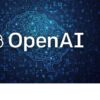How AI is Changing The World-8 Ways It’s Changing Your Life in 2025
What is AI? AI (Artificial Intelligence) is an amazing advancement in modern technology, which has started to bring about massive changes in our lives today. Its impact is not limited to technology alone, but is being deeply reflected in every level of society, even in our daily lives. Healthcare, education, industry, communication, transportation, security, employment and social and ethical challenges – the impact of AI has ushered in a new era in every field. Below is a detailed discussion of the spread of AI and its important aspects in each field.
1.Revolution in Healthcare
AI is opening a new horizon in the field of healthcare. It is not only improving disease detection, but is also impacting medical management, disease prevention and the overall effectiveness of healthcare. Diagnosis of diseases is now faster and more accurate. For example, scanning technologies, CT scans and MRI, are being analyzed in more detail by multiple AI software, due to which doctors are able to diagnose diseases quickly and accurately. Digital health assistants such as Siri and Google Assistant or specialized AI doctors are helping to collect patient information and monitor their medical process. In addition, robotic surgery is making more precise and less risky operations possible in the medical field.
2.A new era of education and research
AI is also revolutionizing the field of education. It has opened a new horizon in creating personalized education. By arranging the curriculum according to the skills and interests of students, their learning experience is being made more effective and relevant. The spread of online education is increasing more systematically through the use of AI, where content is automatically created and curriculum is being arranged that is suitable for students. AI-based translation systems are overcoming language barriers and facilitating communication between students from different countries. In research, researchers are able to analyze various data using AI models, which was never possible before and new research areas are being created.
3.Transformation of industry and business
AI is bringing about massive changes in industry and business. Automation has increased the speed and accuracy of work in the manufacturing sector. As a result, production costs have decreased and it has become possible to produce more products. The impact of AI is also being seen in the customer service sector. Companies are able to quickly solve customer problems using chatbots and virtual assistants. In addition, business analysis and data analysis have become easier with AI, which is helping companies to better tailor their marketing strategies. For example, companies are using AI to analyze customer needs, market trends, and profit margins to create their business strategies.
4.Transformation of Communication and Media
AI has also started a new chapter in the communication and media industry. Smart assistants such as Ashwaidh, Siri, and Google Assistant have become part of our daily work. Automated content creation technologies such as GPT-3 have made writing, report creation, and posting content on social media faster and easier. With fake news detection technology, media and social media platforms are now able to be more transparent and trustworthy. AI is making it possible to automatically identify trends on various social media platforms, which is a new milestone in journalism and news reporting.
5.Transportation and Autonomous Vehicles
AI is also revolutionizing the transportation sector. Autonomous vehicles and smart traffic management systems are creating opportunities to reduce traffic congestion in cities and ensure vehicles arrive at the right time. Drone delivery and safe traffic management systems, which mainly work through AI and data analysis, have made road safety and transportation systems more effective. These technologies are making it possible to reduce pollution, increase safety, and manage vehicle movements more accurately.
6.Security and Cybersecurity
AI technology is playing an important role in the cybersecurity sector. Crime detection systems are able to quickly identify terrorist activities or illegal activities based on human behavior and data. Cyber attack prevention technology is identifying and preventing attempts to intrude into the system through artificial intelligence. In addition, big data analysis technology is collecting and analyzing big data, which helps ensure system security.
7.Employment and Human Resources
While AI is creating new employment opportunities, many traditional jobs are at risk. Various robotic processes, automated systems, and software solutions are replacing humans in many workplaces. However, new opportunities are being created in the employment sector through skill development and adaptation to technology. This increases the importance of technology training, especially for young people who can build their careers by learning new technologies.
8.Social and ethical challenges
The spread of AI technology is not only creating opportunities, but it is also creating some ethical challenges. One of these is privacy and data security. The protection of personal data and its unauthorized use are creating problems. In addition, ethical questions related to biased decisions and artificial intelligence are also coming to the fore, such as AI systems
Besides AI is transforming the world in numerous ways across various sectors. Here are some key areas where AI is making a significant impact:
1.Healthcare:
- Diagnostics: AI algorithms analyze medical images and data to assist in diagnosing diseases more accurately and quickly.
- Personalized Medicine: AI helps tailor treatments to individual patients based on their genetic makeup and health history.
- Drug Discovery: AI accelerates the drug discovery process by predicting how different compounds will behave in the body.2.Transportation:
- Autonomous Vehicles: AI powers self-driving cars, improving safety and efficiency in transportation.
- Traffic Management: AI systems optimize traffic flow in cities, reducing congestion and emissions.
- Finance:
- Fraud Detection: AI analyzes transaction patterns to identify and prevent fraudulent activities.
- Algorithmic Trading: AI algorithms make trading decisions at speeds and efficiencies beyond human capabilities.
- Manufacturing:
- Predictive Maintenance: AI predicts equipment failures before they occur, minimizing downtime and maintenance costs.
- Automation: Robotics powered by AI streamline production processes, increasing efficiency and reducing labor costs.
- Customer Service:
- Chatbots and Virtual Assistants: AI-driven chatbots provide 24/7 customer support, handling inquiries and resolving issues efficiently.
- Personalization: AI analyzes customer data to offer personalized recommendations and improve user experiences.
- Education:
- Adaptive Learning: AI systems tailor educational content to meet the individual needs of students, enhancing learning outcomes.
- Administrative Efficiency: AI automates administrative tasks, allowing educators to focus more on teaching.
- Climate Change and Sustainability:
- Resource Management: AI optimizes energy consumption and resource allocation, contributing to sustainability efforts.
- Climate Modeling: AI enhances climate models, improving predictions and helping policymakers make informed decisions.
- Entertainment and Media:
- Content Creation: AI generates music, art, and writing, pushing the boundaries of creativity.
- Recommendation Systems: AI algorithms suggest content based on user preferences, enhancing user engagement.
- Security:
- Surveillance: AI enhances security systems through facial recognition and anomaly detection.
- Cybersecurity: AI identifies and responds to cyber threats in real-time, improving overall security.
- Workplace Automation:
- Task Automation: AI automates repetitive tasks, allowing employees to focus on more strategic work.
- Decision Support: AI provides data-driven insights to support decision-making processes.
While AI offers numerous benefits, it also raises ethical concerns, including job displacement, privacy issues, and biases in algorithms. As AI continues to evolve, addressing these challenges will be crucial to ensuring its positive impact on society.








